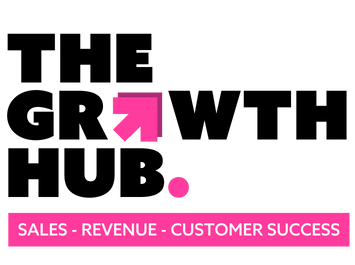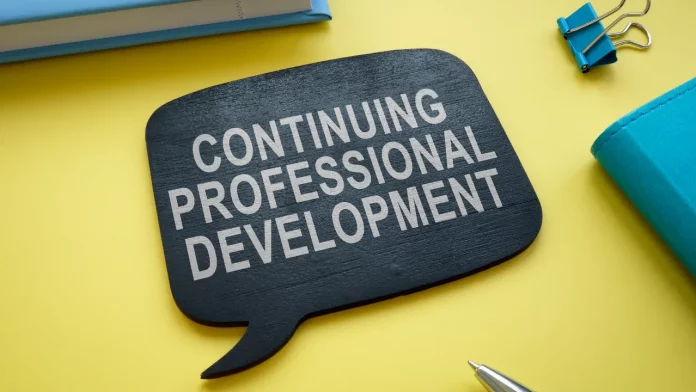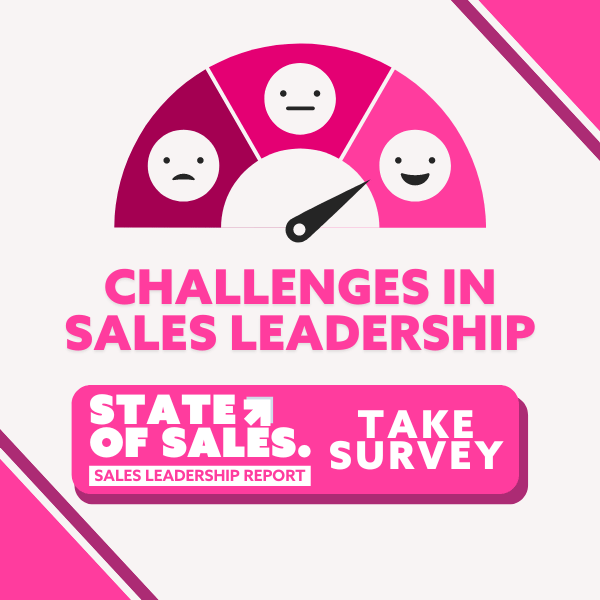A key quality of any spokesperson is the desire to challenge themselves, grow as a professional, learn new skills and better their ability to sell. Furthermore, instilling a culture of learning and enabling a growth mindset across an organisation’s sales force is essential to run a successful, profitable business. This will help to provide an environment that nurtures, develops and retains your existing team but also attracts the best talent from elsewhere.
Meeting these targets can be achieved through Continuing Professional Development (CPD), a combination of approaches, ideas, and techniques that help salespeople manage their own learning and growth. It offers the intentional maintenance and development of both knowledge and skills needed to perform in a professional context. This could be the honing of current skills and/or learning new skills that enable an employee to flourish in their own role or prepares them for promotion.
CPD benefits for the employee
Undertaking CPD will help employees bolster their knowledge and skill base and learn new skills. It is also helpful for ensuring that any professional standards, certifications, and qualifications are up-to-date.
Completing CPD can also inspire employees to further their professional aspirations. It helps them to build their confidence and credibility, enables them to showcase their skills and achievements, and provides them with the actionable skills required to cope positively with change. This can be hugely beneficial in helping people looking to progress their careers by getting promoted, diversifying or beginning to specialise in a new area. They will have the confidence to demonstrate their agility and discover the dedication required to develop their career.
CPD benefits for the employer
Most organisations are now organising CPD obligations as they realise the value of a constantly developing workforce. It enables the business to ensure that standards across the company are always increasing and evolving, while increasing the likelihood of engagement and commitment from their workforce.
Having multiple employees undertake CPD widens the sharing of best practice, ensuring the business runs more productively and efficiently. This also contributes to enhancing staff potential and provides a useful benchmark for annual appraisals.
How to undertake CPD
Employees can undertake CPD activities ranging from educational activities, such as instructor-led training courses, workshops and seminars, through to more informal approaches, such as work-based learning or mentoring.
The focus of CPD is very much on results and the tangible benefits it can bring you in the real world. Wherever you are in your career and whatever you ultimately want to achieve, you can use CPD to hone the skills and knowledge you need to get there.
With that in mind, here is our ultimate checklist for how CPD can help you progress in your career:
- CPD helps ensure your capabilities keep pace with the current standards of your peers
- CPD ensures that you develop and enhance the knowledge and skills required to deliver the services that your customers, colleagues, managers, and community demand
- CPD will help your knowledge stay relevant and up to date. You will be more aware of the evolving trends and hot topics affecting customers, which will only enhance your sales technique and boost your ability to close deals. The pace of change is faster than it’s ever been, which makes this a vital skill to have for any salesperson. If you stand still, you will get left behind by your peers, so it’s key to keep topping up your knowledge and understanding.
- CPD will position you to make a meaningful contribution to your team and become a more effective force within your organisation. This can be hugely beneficial in career advancement, enhancing your ability to move into new roles, and position you to lead, manage, influence, coach, and mentor other people.
- CPD helps you to stay interested and interesting. Experience is a great asset, but it can be a negative if you find yourself lumbered with the same tasks and routines. Focused CPD gives you access to new possibilities, knowledge, and skill areas.
- CPD can help you build a deeper understanding of what it means to be a professional, and better appreciate the implications and impact of your work
- CPD helps to increase the level of knowledge and technology expertise present within your organisation
The CPD Cycle
The CPD cycle is a useful guide that will help you structure your development and manage your learning.
Stage 1: Identify and Plan
The Identify stage will help you assess where you are and where you want to get to, before then being able to tackle how you plan your future course of action.
You need to be able to analyse your past roles and achievements, the position you now find yourself in and where you aspire to be in the future. This will help you identify the learning and training you need to undertake to support and realise your career aspirations.
You’ll then be able to start planning how you get there and create milestones you want to achieve in the process and map your progress. A lot of your learning will not be planned, so this stage early on in the process will provide you with a guide to follow rather than a plan that has to be strictly adhered to. Focus on outcomes you’d like to achieve rather than the time it will take to complete activities or meticulously planning everything you want to achieve.
Stage 2: Act
Your CPD plan is likely to include a combination of developing new skills and learning more about your role, or it could be as a means of changing your role. Either way, there is a range of resources that can help you put it into action.
Practical resources, such as books and journals through to podcasts and reports, will help you support your learning objectives. But if your CPD goals are to develop leadership skills, then it may be beneficial to focus your time on tools and advice that help you in time management and dealing with stress at work.
In addition, your everyday learning at work can be hugely beneficial in your development, so take the time to regularly reflect on how your day-to-day activity boosts your CPD.
Stage 3: Reflect
This stage of CPD encourages you to think critically about your progression, deepens self-awareness and enhances your communication skills.
This is especially important as modern workplaces and working lives are increasingly busy, with a multitude of learning experiences available on a daily basis. Making sense of those experiences and turning them into insight and strategies that you can use to boost your personal growth will be a significant skill to have.
This is typically learned through conversation, working individually or as part of a team, to analyse behaviour, become aware of values, question assumptions and challenge perceptions. Be sure to take the time to pause and reflect to help you consciously translate what you’re learning into practice and into your daily work activities.
Stage 4: Apply
The best way to continue learning through the CPD cycle is repetition and constantly applying your new skills. This could mean starting a new project or stepping outside your comfort zone, or simply seeking feedback wherever possible.
Stage 5: Share
That naturally takes you to the sharing stage of CPD, which involves getting insight and support from your peers. Learning doesn’t stop with application, it is an inherently social process that can also be gained through feedback. Furthermore, collaborating on learning is a great way of building networks and sharing ideas.
This can be achieved through joining online communities, such as LinkedIn or Twitter, blogging platforms and collaborative learning tools, or networking at conferences and exhibitions. Whichever you prefer, this is a great way to showcase your ability and skills to your peers, employers, and customers.
Stage 6: Impact
The final stage of the process is to take all the CPD learnings and deliver the impact of them. The impact is created by taking a robust approach to professional development and honing the habitual behaviours that support effective CPD.
Focus on how you apply your learnings and how this benefits your team and colleagues, which should be focused on measurable outcomes.
At this stage, it’s also useful to evaluate progress against the objectives you set yourself at the Identify stage and consider what you’ve learnt and whether you achieved your initial targets, how you’ve applied it in your day-to-day activity and the impact this has had on your organisation.
CPD is a vital approach for anyone looking to further their sales skills, technique and approach, further their career and enhance their employability. CPD can help employees flourish and help employers benefit from a developing, strengthening workforce and ensure standards are always increasing.




